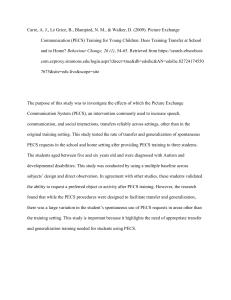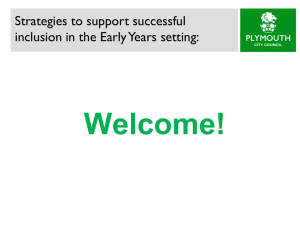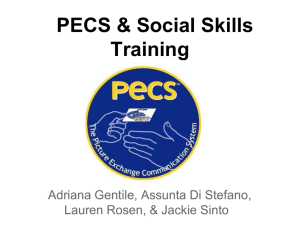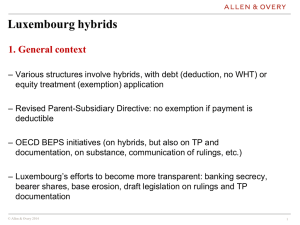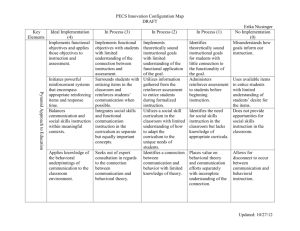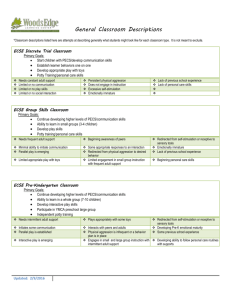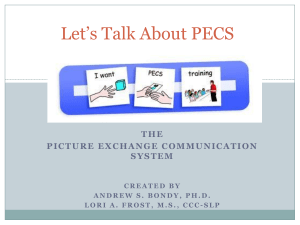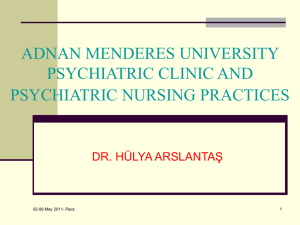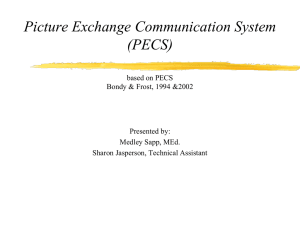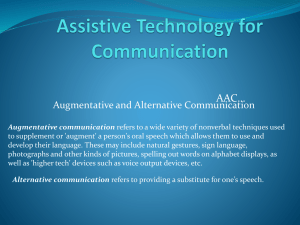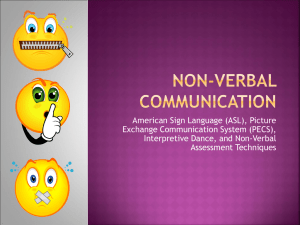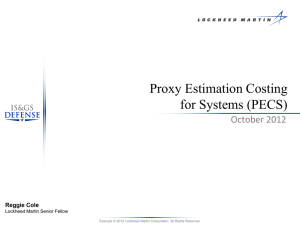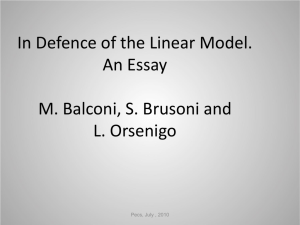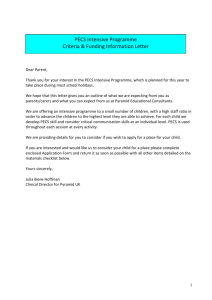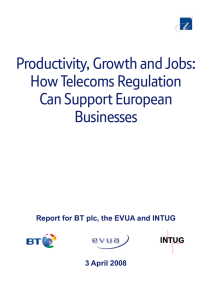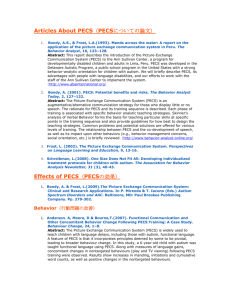Moving on from PECS (ppt 9MB)
advertisement
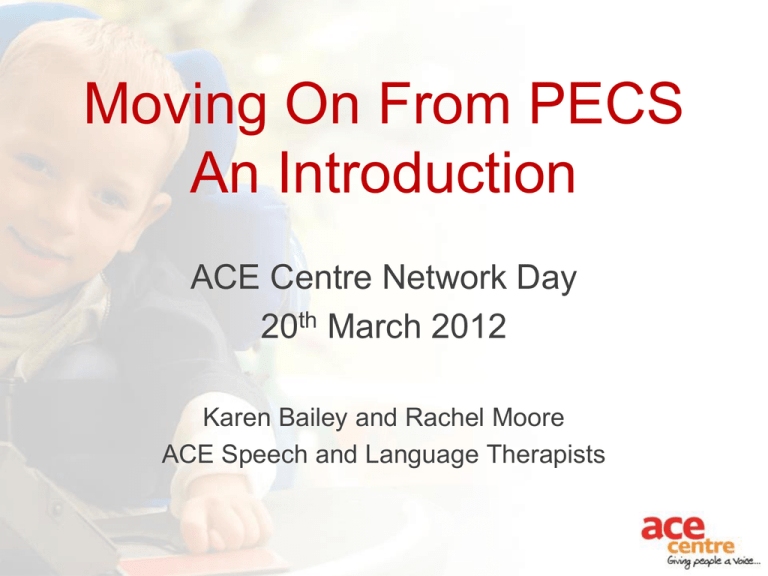
Moving On From PECS An Introduction ACE Centre Network Day 20th March 2012 Karen Bailey and Rachel Moore ACE Speech and Language Therapists An Introduction • PECS (Picture Exchange Communication System) is a useful tool for developing communication • Well known tool for teaching skills for developing communication • What if an individual doesn’t develop functional speech? Why was PECS developed? From PECS Training Manual - Lori Frost & Dr Andy Bondy Different communication systems had been tried & failed because of:• lack of initiation for communication • lack of response to social rewards • poor motor imitation ? Question ? What about individuals who no longer need PECS to initiate communication and… • have not developed functional speech? or • need visual support in order to speak? Criteria for giving up PECS according to PECS trainers From PECS Training Manual- Frost & Bondy • Speech vocabulary is as large as PECS vocabulary • Initiation with speech is intact • Length of spoken utterance is as long as PECS utterance • Speech is intelligible to untrained listener Alternative AAC resources • No Tech - Signing • Low Tech - Books and charts • Voice output Communication Aids When moving on from PECS… Consider the importance of… • Pointing • Modelling • Visual prompts Modelling in action Benefits of managing a pointing system • speed • fluency • creativity • portability • maintenance Language Functions Social Request Describe Question Direct Give Information Core Vocabulary Fringe Vocabulary Pointing in action Low tech book Pointing in action Voice Output Communication Aid Alternative AAC resources • Books and charts • Speech output devices Concerns when moving on from PECS • Loss of familiar system • Not building up a complete sentence Case Study - Henry • On the autistic spectrum • Limited understanding in most situations • Limited speech and expressive language • Exceptional knowledge and use of language associated with the world of dinosaurs • Highly supportive team around Henry who are prepared to put time into generating resources for him Case Study - Henry • Clicker 5 was introduced to develop his expressive language as well as his literacy • Important features included visual support (symbols) and auditory feedback • Be aware of using too much media in the grids but do use this as a reward Henry’s grids Following an assessment Clicker 5 was introduced to Henry • Open grid: – (grids from assessment day – Planet Earth, with and without sound) • Forced order: – (forced order Jurassic park story) • Moving on to open grids Assessment grids Clicker Forced Order Clicker More Forced Order Henry’s grids Following an assessment Clicker 5 was introduced to Henry • Talking story: – (dinosaur Talking Book) Clicker Talking Story Henry moving on • Talking books to help with transition into new school. Included pictures and video of school, new teachers and peers, new classroom etc • iPad: – “We found ‘Pictello’ fantastic!” • Visual instructions / visual stories – Visual schedules Useful apps • Pictello: for creating stories based on visual scenes • Visual schedules: e.g. First then visual schedule for autism with text, voice and picture. CONCLUSION • PECS can be an important first step in the path towards social interaction • When this first step has been achieved, other methods should be considered for further developing communication Future ACE Centre Courses • Getting Started with AAC Thursday 22nd March 2012, 10am to 4pm ACE Oxford • Moving On From PECS Wednesday 30th May 2012, 10am to 4pm ACE Oxford • iPads, iPods and Communication Tuesday 3rd July 2012, 10am to 4pm ACE Oxford Delegate fee for above one-day courses - £120
